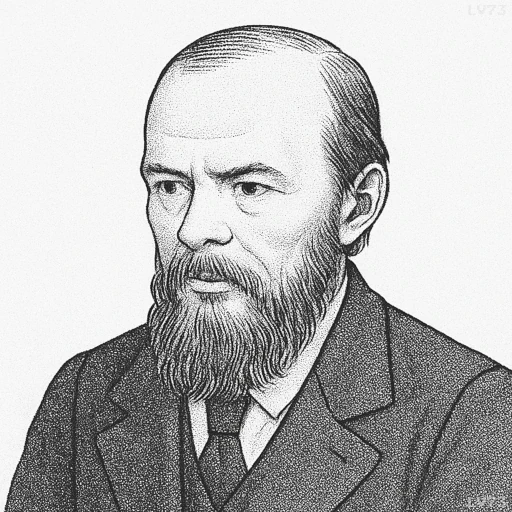“If there is no God, everything is permitted.”

- November 11, 1821 – February 9, 1881
- Born in the Russian Empire
- Novelist, philosopher
table of contents
Quote
“If there is no God, everything is permitted.”
Explanation
Dostoevsky’s famous quote comes from his novel The Brothers Karamazov and speaks to the moral consequences of atheism or the absence of a divine moral authority. The statement suggests that, without belief in God or some higher moral law, there are no inherent moral boundaries or absolute values to guide human behavior. In a world where God does not exist, individuals would be free from any objective moral framework, meaning they could justify any action, no matter how immoral or destructive, based on personal desire or convenience. This idea reflects Dostoevsky’s deep concern about the implications of nihilism—the belief that life has no inherent meaning or value—and how this could lead to moral relativism, where the distinction between right and wrong becomes blurred.
For Dostoevsky, the concept of a divine moral order was essential for maintaining human dignity and preventing society from descending into chaos. The absence of God, in this view, creates a moral vacuum, where individuals might feel that they are free to act without consequences, leading to potential self-destruction and social disorder. This theme is explored in The Brothers Karamazov through the character of Ivan Karamazov, who grapples with the problem of suffering and the implications of a world without God. Ivan’s challenge is that, without a belief in divine justice, there is no accountability for the pain and evil that exist in the world. His argument suggests that, if there is no higher power to provide moral guidance, then anything—no matter how cruel or unjust—could be justified.
In the context of modern philosophy and society, this quote continues to resonate with debates around ethics, morality, and the role of religion in shaping human behavior. In an increasingly secular world, many people question whether morality can exist independently of religion. Can human beings have a sense of right and wrong without a belief in God? While some philosophers argue that ethical systems can be grounded in human reason or social contracts, others, like Dostoevsky, maintain that without a higher divine authority, moral principles risk becoming arbitrary or self-serving. The idea that “everything is permitted” challenges us to consider the limits of human freedom and whether a sense of moral responsibility can exist without an overarching spiritual framework. Ultimately, Dostoevsky’s quote serves as a stark warning about the dangers of abandoning a belief in God, suggesting that without this grounding, the human soul may lose its way and the social fabric may unravel.
Would you like to share your impressions or related stories about this quote in the comments section?
